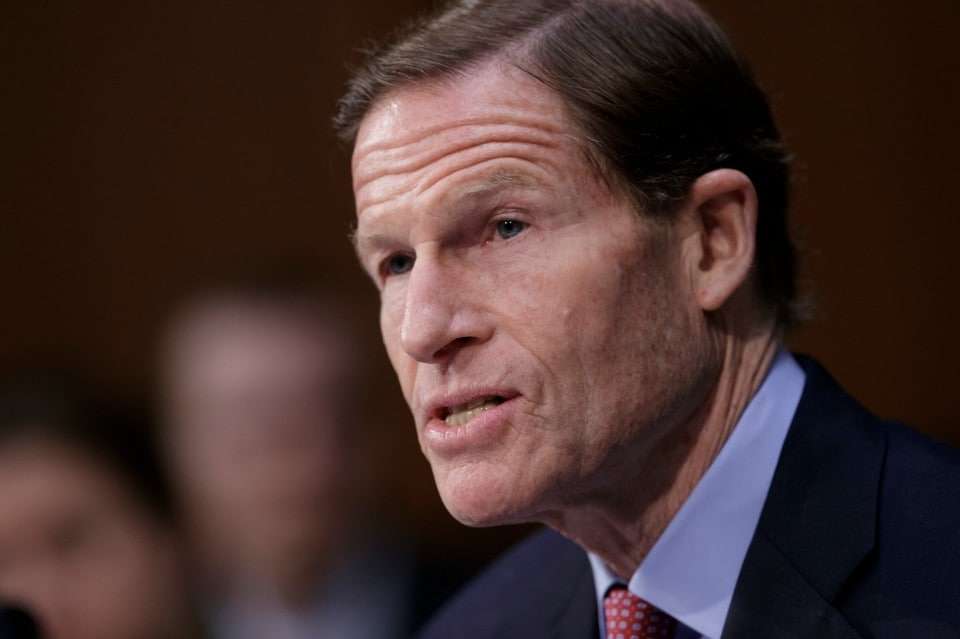The Volokh Conspiracy
Mostly law professors | Sometimes contrarian | Often libertarian | Always independent
Does Sen. Blumenthal have an emoluments clause problem? (Updated)

Sen. Richard Blumenthal (D-Conn.) is the lead plaintiff in a lawsuit filed by members of Congress alleging that President Trump is violating the foreign emoluments clause. Specifically, the lawsuit alleges that because President Trump "has a financial interest in vast business holdings around the world that engage in dealings with foreign governments and receive benefits from those governments," he "has accepted, or necessarily will accept, 'Emolument[s]' from 'foreign State[s]'" in violation of the Constitution.
The complaint in Blumenthal v. Trump embraces a fairly expansive interpretation of what constitutes a prohibited emolument, perhaps too broad. Professor Andy Grewal (among others) has criticized the theory underlying this complaint as overly broad. (Others of us have expressed deep skepticism about whether anyone has standing to pursue these sorts of claims.)
At the Point of Order blog, Michael Stern notes an added wrinkle in Blumenthal v. Trump: Under the theory articulated in the complaint, it appears that Blumenthal himself is violating the foreign emoluments clause (FEC). Stern writes:
On the broad reading of the FEC advanced in the Blumenthal complaint, it would appear the senator is currently in violation of that constitutional provision. He has a financial interest in at least one business (the Empire State Building) which receives revenue from at least one foreign instrumentality (the People's Daily). By Blumenthal's own theory, therefore, he is receiving a prohibited emolument.
I suspect this theory will prove too broad to be sustainable. But the question then becomes whether there is a narrower theory that would encompass Trump's interest in Trump Tower but not Blumenthal's interest in the Empire State Building. No doubt Trump's financial interest in Trump Tower is much greater than Blumenthal's in the Empire State Building. But this would just mean that Trump may be receiving a larger emolument, not that Blumenthal is receiving none.
One might argue that Trump's role in actually operating and managing Trump Tower means that he is receiving compensation for services, not merely passive or unearned income. (Of course, if he were compensated for his services through a salary from the entity that actually owns Trump Tower, the OLC analysis suggests it would not be an emolument). But this argument is harder to make since he has turned over all management responsibilities to his children. And if the fact that Trump's children are managing Trump Tower counts against him for purposes of the FEC, wouldn't the fact that Blumenthal's father-in-law and other extended family members manage the Empire State Building likewise be a problem for him?
It's going to take some constitutional fancy footwork for Blumenthal to avoid getting caught in his own web.
It's one thing to argue the president should have divested himself of his hotel and other holdings to eliminate any conflicts of interest. It's quite another to argue he's violating the Constitution.
UPDATE: The Washington Examiner reports on Sen. Blumenthal's response.


Show Comments (0)